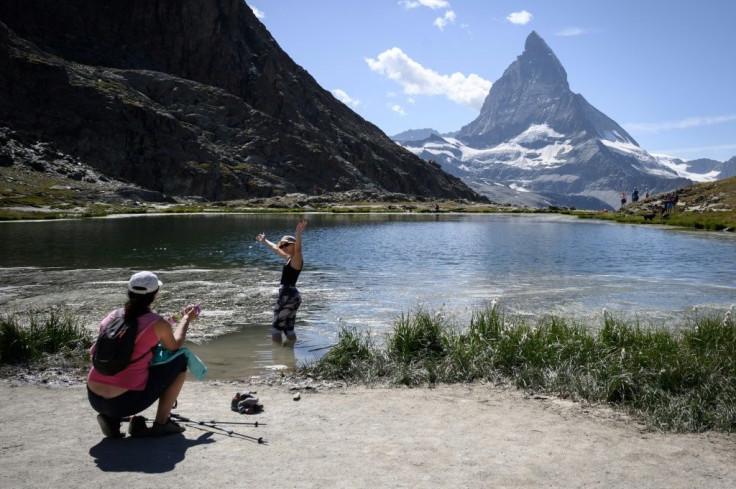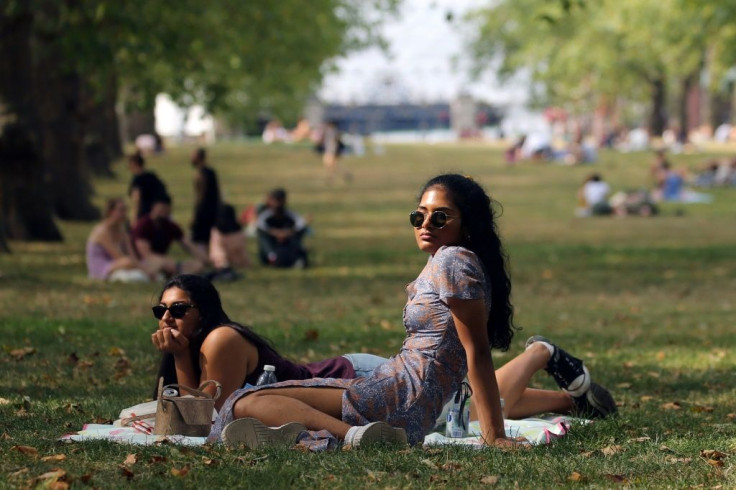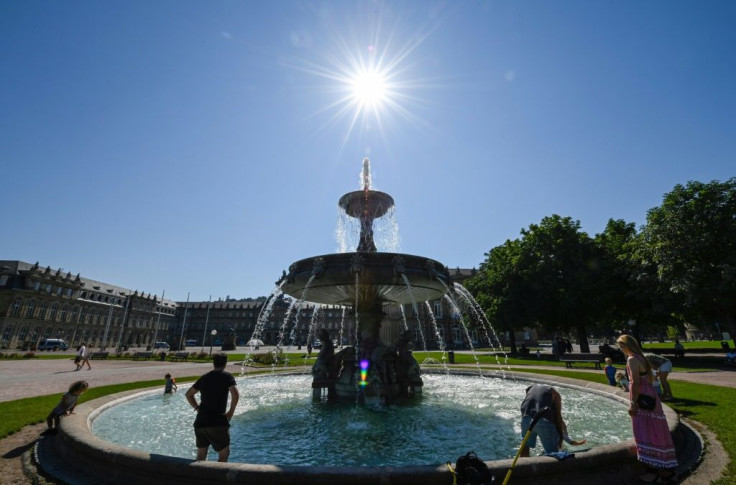Europeans Warned Not To Forget Virus As Temperatures Soar
Sun-seekers flocked to beaches Saturday as parts of western Europe baked in a heatwave, but authorities urged people to avoid crowded areas and keep wearing their masks over concerns at rising numbers of coronavirus cases.
The day after Britain recorded its hottest August day in 17 years, at 36.4 degrees Celsius (97.5 Fahrenheit), much of its southern coastline was packed with visitors, many of whom had been forced to abandon foreign holidays because of COVID-19 travel restrictions.
Authorities in Bournemouth, home to a golden seven-mile beach, warned at lunchtime that most of the stretch was so busy that "safe social distancing is not possible", and urged people to stay away.

There was a similar story across other parts of Europe, where many residents endured weeks of lockdown earlier this year but face a continuing virus threat.
In recent days, France warned about an uptick in cases, Spain locked down a town of 32,000 for two weeks, Britain imposed new regional restrictions and Germany closed two schools.
Crowds of Germans headed for their country's shores on Saturday, but local authorities warned some beaches and lakes would be closed if there are too many people.
Police in the capital Berlin told residents to avoid the popular lake Mueggelsee, while in Brandenburg state, the beach at Prenzlau lake was turning people away.

"First time I've experienced that in 30 years," said the manager of the Prenzlau site, Ronny Klein.
In France, alerts have been issued across the country and the health minister has urged people to keep wearing face masks even as temperatures hover around 40 degrees Celsius in some places.

Temperatures have been high for a few days and are set to continue into the middle of next week, sparking warnings for vulnerable people to stay inside.
For some, it was too hot. Roland and Helene, retirees in suburban Paris, said they go out early "to get some fresh air," but spend the rest of the day in their apartment.
"We fear the heat a lot," Helene said.
For the third day in a row, officials in Paris and the southern French port city of Marseille imposed driving and other restrictions to limit ozone pollution that affects people's breathing.
The Belgian capital Brussels recorded its hottest August 8 since 1975, with 34.3 degrees reached mid-afternoon.
Authorities there have warned against using fans to cool off, except at home, because of the heightened risk of spreading coronavirus.
The Netherlands also recorded its hottest August 8 since temperature measurements started in 1901, and alerts were issued for three southern provinces as temperatures topped 35 degrees.
Thousands of visitors flocked to Dutch beaches on Saturday including in The Hague, where many ignored the coronavirus social distancing 1.5 metre rule, an AFP correspondent saw.
Researchers warned this week that climate change would bring more hot weather to Europe.
A drought that affected more than half of central Europe during the summers of 2018 and 2019 was "unprecedented in the last 250 years", according to a study published in the Nature journal Scientific Reports.
It predicted that if greenhouse gas emissions continue their inexorable rise, the number of extreme two-year droughts will increase sevenfold in Europe in the second half of this century.
© Copyright AFP 2024. All rights reserved.





















